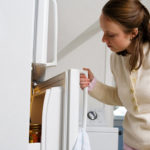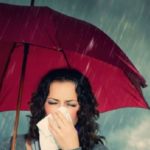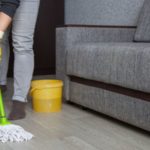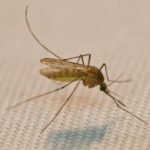In recent days, the Northeast region of the country has experienced heavy rain, along with high humidity in the air. Monitoring through smart weather forecast apps, the average air humidity reaches over 80%, with some moments reaching over 90%. High humidity in the air can lead to sweating, accompanied by the phenomenon of “sweating houses”.
Simply put, this phenomenon occurs when the house, including the floor, ceiling, walls, or objects inside the house, is damp and water is dripping on the surface. “Sweating houses” not only cause inconvenience in daily life, but also pose risks of damaging objects, causing the house and rooms to have an unpleasant smell, and affecting the health of family members as a moist environment is an ideal environment for viruses, bacteria, and mold to grow…
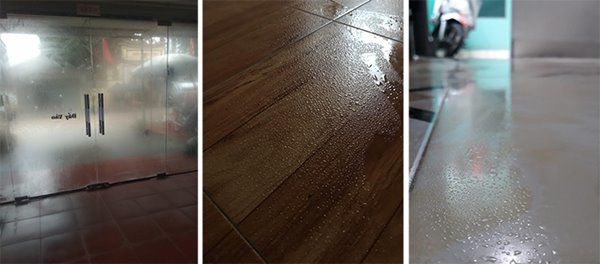
The phenomenon of sweating during humid days can occur on the floor, walls, or objects and furniture (Illustrative photo)
Therefore, it is better for families to have a plan in advance for the days when the weather becomes humid, in order to minimize the phenomenon of “sweating houses”. The drying mode of air conditioners, dehumidifiers, or objects that help absorb humidity in the house, such as newspapers, can be used and effectively utilized. However, to prevent the house from being damp in the best way, experts advise that there are the “3 DON’Ts” principle that families should note.
The “3 DON’Ts” principle on humid days
1. DON’T open the house doors when not necessary
Many people think that on humid days, opening the house doors, such as windows or entrance doors, will help air circulation. Therefore, the moisture in the house will evaporate better, and there will be no more lingering moisture in the house. The wind blowing in from the outside will make the house drier. However, in reality, it is the opposite.
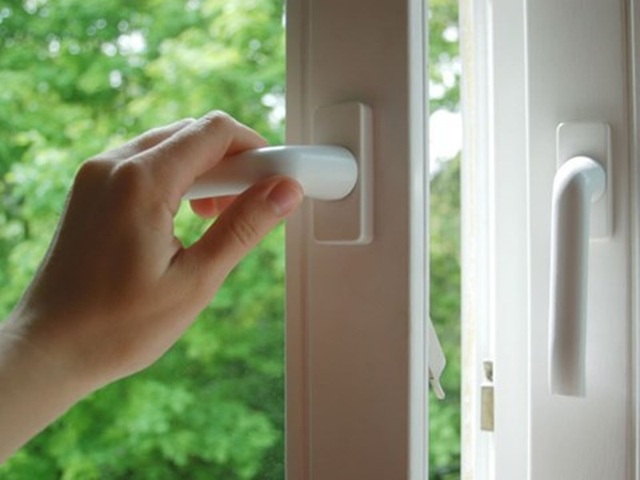
Opening the house doors when it’s humid outside is highly not recommended (Illustrative photo)
Opening the doors will make the humid air from the environment enter the house, into the rooms more easily. As a result, the space not only doesn’t become drier, but also becomes more humid. Therefore, when feeling that the outside air is humid, it is better that users limit opening unnecessary doors in the house, including windows and entrance doors. This would help “protect” the house from the humid air outside and limit the “sweating” phenomenon.
2. DON’T mop the floor with water
The second thing on the “3 DON’Ts” list on humid days is mopping the floor with water. When the house is sweating, especially in the floor area, it can cause slipping when people move around and create unhygienic and inconvenient living conditions. At this time, many people often mop the floor with water to make the space cleaner.
However, in reality, mopping the floor with water does not solve the problem, but even makes things worse. The humidity of the air combined with the water used by people to mop the floor will cause more sweating.
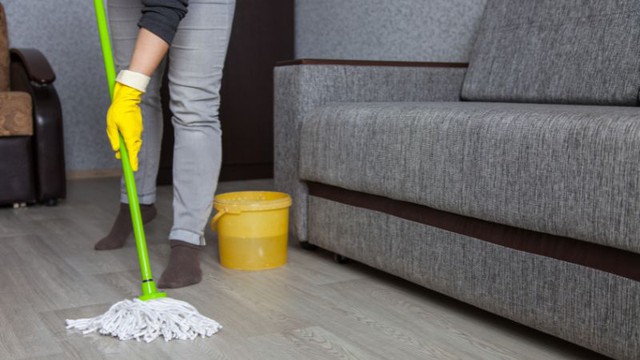
Mopping the floor with water is also in the “3 DON’Ts” list on humid weather (Illustrative photo)
If you want to clean the house on humid days, users should only use dry towels with good water absorption to mop the floor or wipe objects in the house, especially wooden objects or electronic devices.
As mentioned above, in addition to using dry towels, using the “Dry” mode of air conditioners, dehumidifiers, or other objects with humidity-absorbing features can also significantly help the house minimize sweating.
3. DON’T use fans
Lastly, in the “3 DON’Ts” list, the most common mistake that families make on humid days is using fans. Families expect that the fan will help moisture evaporate faster and make the space drier. Many families even combine the use of fans with continuous mopping or opening doors.
Experts explained that when using fans, the cold air blown out by the fan not only does not make the water vapor evaporate and dissipate but also makes the humid air condense more strongly. As a result, more water accumulates, and the “sweating” phenomenon will not be resolved but become worse.
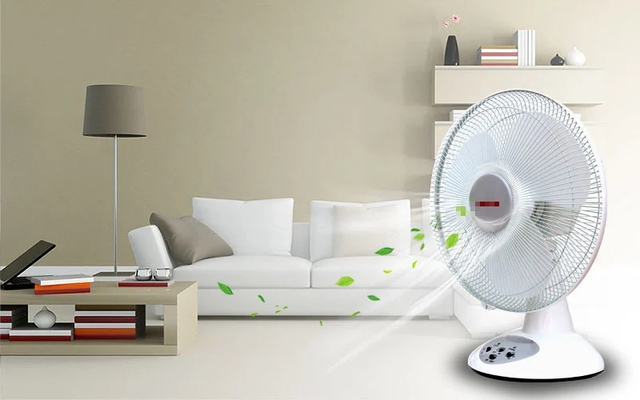
Using fans does not help but even worsens the sweating phenomenon inside the house (Illustrative photo)
Effective methods to limit humidity
In the US, during the summer months from May to August, humid days are also common. Therefore, the US Environmental Protection Agency (EPA) has provided some advice to help people partially overcome this situation.
1. Turn on the bathroom vent fan or kitchen hood to draw a part of the humid air outside.
2. Lay plastic sheets, mats, or newspapers on the floor to absorb some moisture. However, with mats, they need to be washed regularly, and newspapers need to be replaced frequently.
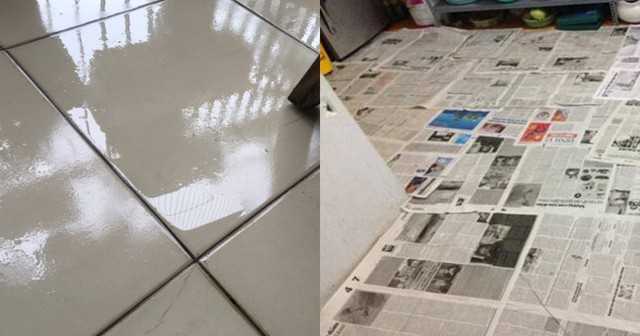
Laying newspapers on the floor is a simple and easy-to-implement method, but users need to replace them frequently (Illustrative photo)
3. Paint the house with waterproof and good insulation materials, such as fiberglass insulation or cellulose insulation. This will help minimize the amount of humid air entering your house.
4. Avoid placing objects, especially electronic devices and wooden furniture, close to the wall, as they can cause damage.
5. Turn off or remove any humidifying devices in the house.
6. Place some plants in the house that have the ability to absorb humidity, such as ferns.
On humid days, the following devices are highly sought after by users as they bring about efficiency and reduce inconvenience in life: Air conditioners with the “Dry” mode, dehumidifiers, air purifiers, clothes dryers…
According to Life and Law
























